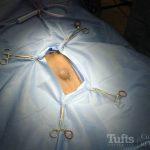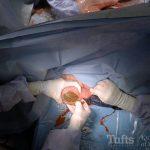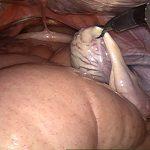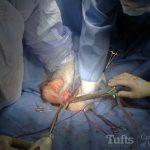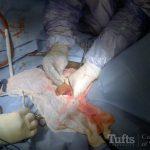Specialized Services for General Surgery
We routinely manage complex surgical cases in collaboration with our other on-site specialists in cardiology, radiology, pathology, ultrasonography and ophthalmology to ensure a multidisciplinary approach and the highest standard of exceptional care in a single location. We work as a team supported by dedicated and experienced residents, interns, veterinary technicians and senior veterinary students to provide each patient with personalized, intensive care 24 hours a day.
All surgeries requiring general anesthesia are supported by our dedicated team of board-certified anesthesiologists and experienced technicians. We provide a safe and optimal experience specifically tailored to each horse’s needs, utilizing the latest monitoring equipment to oversee each patient before, during and after surgery.
Services
-
Injuries in equine patients pose a variety of challenges. Many equine injuries are complex and involve not just the skin but underlying tendons, ligaments and joints. We offer comprehensive evaluations and treat the full spectrum of equine injuries, both acute and chronic.
-
Horses are at risk for a variety of types of cancer including sarcoid, squamous cell carcinoma and melanoma. Depending on the case, a wide number of medical and surgical options may be utilized to enhance the opportunity for resolving the tumor. These include a number of local chemotherapy agents which can be used alone or in combination with surgery.
-
Hernias may be present at birth or develop later in life due to trauma. Some of these cases can be quickly resolved with a direct sutured repair while larger, more complex cases may require advanced techniques such as the use of mesh to enhance the repair. Following an evaluation, a recommendation for the best option can be made.
-
-
We are prepared to provide colic surgery 24 hours a day to address causes of colic such as intestinal torsions that require acute surgical intervention. In addition, elective abdominal explorations can be performed in cases of chronic colic when routine diagnostics have not been able to identify and correct the underlying cause.
-
Although castration is one of the most commonly performed surgeries in horses, routine castrations have been associated with a relatively high complication rate, sometimes exceeding 20 percent. A full range of castration procedures are available to meet your horse’s needs and may be performed in the operating room to minimize the chance of infection. In addition to traditional castrations, open and laparoscopic procedures are available to identify and remove cryptorchid testicles.
-
Mares can develop certain types of tumors of their ovaries which can necessitate removal. Sometimes these tumors can cause changes in behavior such as aggression towards other horses or people. A complete evaluation including ultrasound and hormonal testing is performed to determine if surgery is necessary. Depending on the case, this may be completed standing or under general anesthesia.
-
While bladder stones are not a common problem in horses, stones can cause significant problems once they form. These issues can range from blood in the urine to colic signs. In most cases, surgery is required to remove the stone and can sometimes be performed with the horse awake and sedated.
-
This technique allows select conditions to be treated with a less invasive approach. During a laparoscopic procedure, small incisions are made to introduce a camera and instruments into the abdomen. The most common uses of this technique are for the removal of cryptorchid testicles from the abdomen and ovarian tumors.
